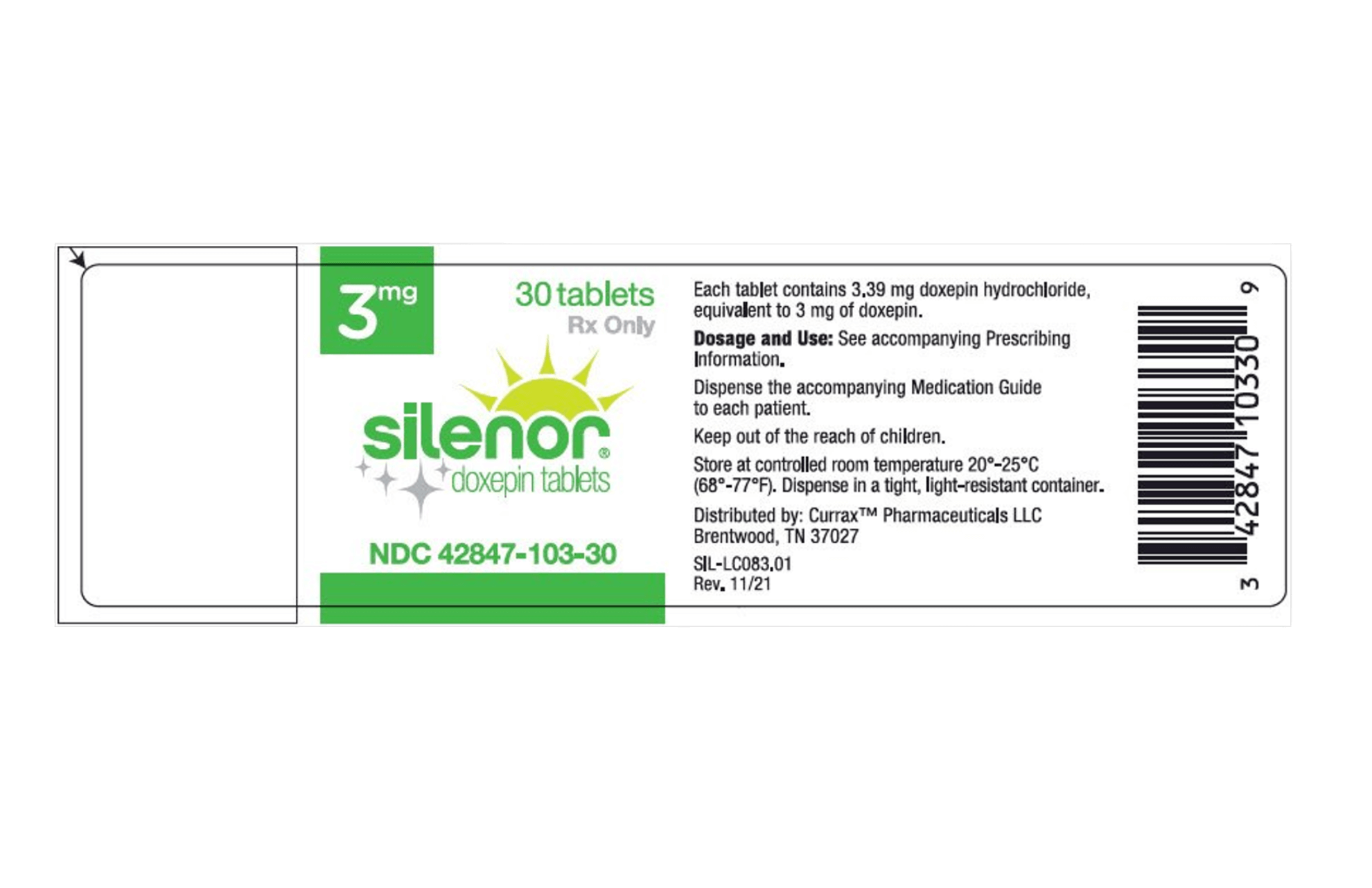Silenor (
generic name: doxepin) is a prescription medication specifically designed to treat
insomnia, particularly for
people who have difficulty staying asleep.
Doxepin is a
tricyclic antidepressant that works by blocking histamine receptors in the brain, which are responsible for promoting wakefulness. Its unique mechanism helps patients fall asleep more quickly and stay asleep throughout the night without causing any significant “hangover” feelings the following morning. Unlike many other sleep aids, Silenor is non-habit-forming, making it a suitable option for long-term management of insomnia.
Most other sedative-hypnotic medications like zolpidem or eszopiclone are
GABA receptors, which means they are classified as controlled substances that are habit-forming. Silenor works on the histamine system, offering an alternative for people who do not tolerate or respond well to those medications. Silenor is generally well-tolerated, and its mild sedative effects make it a practical option for treating sleep-maintenance insomnia without altering the sleep patterns.
For further details on doxepin and its effectiveness in treating insomnia, visit this
source.
Dosage
Take Sielenor as prescribed by the doctor. The recommended dose for adults is one or two 3 mg tablets daily,
30 minutes before bedtime. Doctors can vary the dose according to its effectiveness. Avoid taking Silenor within three hours of a meal, as this may reduce the dose’s effectiveness.
Consult with the prescribing doctor if the sleep problems worsen or do not show any improvement within seven to ten days. Another condition may be causing the sleep problem.
If accidentally an overdose of Silenor is taken, call a doctor to go to an emergency clinic right away.
Storage
Store Silenor at room temperature in its original container, tightly sealed, and away from moisture and heat. Store out of reach of children and pets. For more information on how to store medicines safely, read
our blog on proper medicine management.
Common Questions About Silenor
How long does it take for Silenor to start working?
Silenor begins working within 30 minutes to one hour after taking it, helping patients fall asleep and stay asleep. To improve its effectiveness, it is important to take the medication about 30 minutes before bedtime and avoid eating large meals before taking it.
Can Silenor cause daytime drowsiness?
Yes, Silenor may cause some people to feel drowsy the following day, especially if they did not get enough sleep or if it was taken with a high-fat meal. To minimize daytime drowsiness, try to get a full 7-8 hours of sleep and avoid taking the medication with food.
Can Silenor be used with other sleep medications?
Silenor should not be combined with other sleep medications unless directed by a healthcare provider. Mixing sleep medications can increase the risk of side effects such as excessive sedation and dizziness. Always inform the healthcare provider of all medications being taking.
This text is for informational purposes only. Please consult a doctor or pharmacist before using any medication.
Read the information leaflet that comes with the medication.
Most people who use Silenor do not experience any adverse side effects. Doctors prescribe this medication because they assess the benefits of such treatment outweigh any likely unwanted effects.
Some of the side effects that have been reported include:
- Drowsiness
- Dry mouth
- Nausea
- Fatigue
- Dizziness
Cautions
Silenor may cause daytime drowsiness, particularly if taken with a high-fat meal or not getting a full night’s sleep. Patients should avoid driving or operating heavy machinery until they know how Silenor affects them.
Doxepin belongs to a class of medications that can increase the risk of suicidal thoughts, especially in young adults. They should be monitored for mood changes, self-harm, or suicidal ideation when starting to take the drug.
Not all side effects are listed here. If these or other unlisted symptoms persist or worsen, consult a healthcare provider or pharmacist.
Silenor is FDA-approved for the treatment of insomnia, with particular emphasis on sleep maintenance insomnia, where people have difficulty staying asleep. The drug helps prevent interruptions during nighttime sleep and promotes more restful sleep without significantly disrupting natural sleep stages.
The symptoms treated by Silenor include difficulty staying asleep, frequent awakenings during the night, and trouble falling back asleep after waking up too early.














